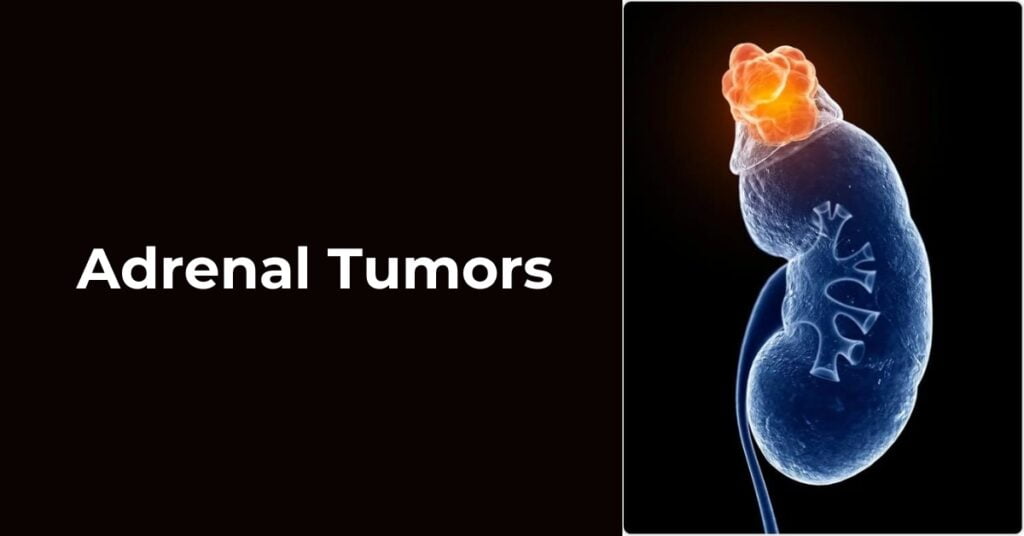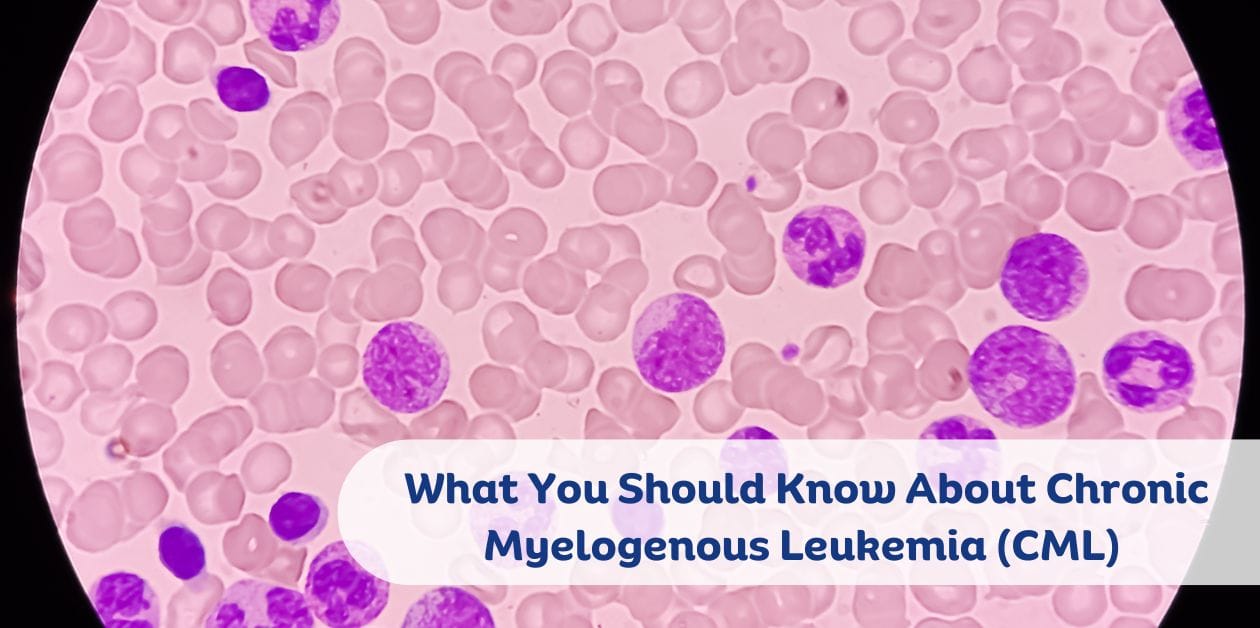What Are Adrenal Tumors?

Did you know some tumors hide near the kidneys and can worsen at an alarming rate? We are talking about adrenal tumors. Adrenal tumors can be benign or malignant. These are known to disrupt hormonal balance, in turn ruining the normal functioning of the body. It is located on the upper part of the kidney and plays an important role in the endocrine system. It is involved in releasing hormones that regulate the functioning of the body, such as metabolism, stress response, and regulation of blood pressure.
What are adrenal glands?
Adrenal glands are two small, triangular in shape, each about half an inch high and three inches long, sitting on the upper region of your kidneys like tiny caps. These adrenal glands have two distinct parts: the medulla and the cortex.
The inner part of the adrenal gland, also known as medulla secretes catecholamines similar to adrenaline and noradrenaline. These are known as stress hormones, which respond during emergencies to increase alertness, heart rate, and blood pressure in order to prepare the body for action. Whereas the outer part of the adrenal gland, also known as the cortex, produces hormones that regulate blood pressure, metabolism and the utilization of fats, carbohydrates, and proteins.
Related posts
Select SpecialtyMedical OncologySurgical OncologyRadiation OncologyHemato OncologyGeneral PhysicianGeneral SurgeonGynecologyPulmonologyMicrobiologistRadiology Dr. John Doe Medical Oncology View Profile Book Appointment Dr. Jane Smith Surgical Oncology …
What You Should Know About Chronic Myelogenous Leukemia (CML) Chronic Myelogenous Leukemia (CML) is a type of blood cancer that originates in …
What are the symptoms of adrenal tumors?
Symptoms of adrenal tumors can vary depending on whether the tumor is functioning (producing hormones) or non-functioning. Here are some common symptoms:
- Functioning Tumors:
Depending on the type of hormone overproduced by the tumor, symptoms may include:
- Cushing’s syndrome: Weight gain, especially around the midsection and upper back, thinning of the skin, easy bruising, muscle weakness, high blood pressure, and diabetes.
- Hyperaldosteronism: High blood pressure, low potassium levels, muscle weakness, and frequent urination.
- Virilization: In women, this can cause excessive facial and body hair growth, deepening of the voice, and irregular menstrual periods.
- Feminization: In men, this can cause breast enlargement (gynecomastia) and loss of libido.
- Non-Functioning Tumors:
- Abdominal or Back Pain: Pain in the abdomen or back, often on the side where the tumor is located.
- Feeling of Fullness: Due to the tumor pressing on nearby organs, such as the kidneys or intestines.
- Unintended Weight Loss: Without dieting or lifestyle changes.
- Fatigue: Feeling tired or weak, even with adequate rest.
- Changes in Urination: Increased frequency or urgency, or blood in the urine.
Symptoms of adrenal tumors can vary depending on whether the tumor is functioning (producing hormones) or non-functioning. Here are some common symptoms:
- Functioning Tumors:
Depending on the type of hormone overproduced by the tumor, symptoms may include:
- Cushing’s syndrome: Weight gain, especially around the midsection and upper back, thinning of the skin, easy bruising, muscle weakness, high blood pressure, and diabetes.
- Hyperaldosteronism: High blood pressure, low potassium levels, muscle weakness, and frequent urination.
- Virilization: In women, this can cause excessive facial and body hair growth, deepening of the voice, and irregular menstrual periods.
- Feminization: In men, this can cause breast enlargement (gynecomastia) and loss of libido.
- Non-Functioning Tumors:
- Abdominal or Back Pain: Pain in the abdomen or back, often on the side where the tumor is located.
- Feeling of Fullness: Due to the tumor pressing on nearby organs, such as the kidneys or intestines.
- Unintended Weight Loss: Without dieting or lifestyle changes.
- Fatigue: Feeling tired or weak, even with adequate rest.
- Changes in Urination: Increased frequency or urgency, or blood in the urine.
Other Symptoms may include nausea, vomiting, fever, or unexplained sweating.
What causes adrenal tumors?
The exact causes of adrenal tumors are not always clear, but several factors may contribute to their development. Here are some potential causes:
- Genetic Factors: In some cases, adrenal tumors can be caused by inherited genetic mutations that predispose individuals to develop these growths. Conditions such as Li-Fraumeni syndrome, multiple endocrine neoplasia (MEN), and von Hippel-Lindau disease are associated with an increased risk of adrenal tumors.
- Chronic Sun Exposure: Prolonged exposure to ultraviolet (UV) radiation from sunlight has been linked to the development of certain adrenal tumors, particularly adrenocortical carcinomas.
- Radiation Therapy: Previous radiation therapy to the abdomen or pelvis, often used to treat other cancers or medical conditions, may increase the risk of developing adrenal tumors later in life.
- Unknown Factors: In many cases, the exact cause of adrenal tumors remains unknown. Some tumors may develop spontaneously due to random genetic mutations or other factors that are not yet fully understood.
Not everyone with these risk factors will develop adrenal tumors, and some individuals may develop these tumors without any identifiable risk factors.
How are adrenal tumors diagnosed?
The diagnosis of adrenal tumors depends on the type and stage of the tumors. Some of the diagnostic methods are:
- Medical History and Physical Examination: The doctor thoroughly reviews the patient’s medical history and a physical examination is done to find the symptoms or signs of adrenal abnormalities, such as palpable masses or changes in blood pressure.
- Blood and Urine Tests: To check the hormonal levels in the body, blood and urine tests are done. Findings like elevated levels of cortisol may indicate Cushing’s syndrome, and excess aldosterone may indicate aldosteronism.
- Imaging Studies: Imaging tests like computed tomography (CT) scans, magnetic resonance imaging (MRI), and positron emission tomography (PET) scans are done to determine the size, location and characteristics of the tumor.
- Biopsy: It involves using a thin needle to extract cells from the tumor, which are then examined under a microscope by a pathologist. Biopsy results confirm the diagnosis of adrenal cancer and determine its severity and potential for spreading.
- Adrenal Vein Sampling: This test involves the comparison of hormone levels in the blood samples collected from the surrounding adrenal gland. This can help doctors determine if tumors are overproducing hormones.
- Genetic Testing: In this type of testing, a patient’s DNA is analyzed to identify specific genetic mutations linked to conditions like Li-Fraumeni syndrome, multiple endocrine neoplasia (MEN), or von Hippel-Lindau disease.
Sometimes more than one diagnostic test is done to ensure an accurate diagnosis and to tailor a suitable treatment plan for the management of adrenal tumors.
How are adrenal tumors treated?
The treatment of adrenal tumors varies depending on several factors, including the type of tumor, its size, whether it is functioning or non-functioning, and whether it is benign or malignant. Here are the main treatment options for adrenal tumors:
- Observation and Monitoring: Some adrenal tumors are very small and non-functioning. The doctors prefer to keep it under observation without any actual treatment. Regular monitoring is done through imaging tests like CT scans or MRIs to track any changes in the tumor over time.
- Surgery: Adrenalectomy or surgical removal of an adrenal tumor is recommended for large and functioning tumors that are suspected to be cancerous. The surgery may be performed using traditional open techniques or minimally invasive laparoscopic approaches. A partial adrenalectomy is performed to remove a part of the adrenal gland while preserving the healthy tissue.
- Medication: Treatment through medications is recommended by doctors for patients who cannot undergo surgeries due to underlying disorders or who have unresectable tumors. Medications aid in managing symptoms or regularizing the production of hormones.
- Chemotherapy: Drugs are used to shrink the tumor, control symptoms, and slow down the progression of the tumor. Chemotherapy is commonly done in cases of cancerous adrenal tumors.
- Radiation Therapy: External beam radiation therapy delivers high-energy X-rays or protons to the tumor site to destroy cancer cells and shrink tumors.
- Targeted Therapy: Targeted therapy drugs may be used to treat specific types of adrenal tumors that have genetic mutations or alterations. These drugs work by targeting and blocking the activity of proteins or signaling pathways involved in tumor growth and progression.
- Clinical Trials: Participation in clinical trials may be considered for patients with advanced or recurrent adrenal tumors who have exhausted standard treatment options. Clinical trials offer access to novel therapies and investigational drugs that are not yet available to the general public, with the goal of improving outcomes and advancing medical knowledge in the field of adrenal cancer treatment.
Sometimes a multimodal treatment approach is recommended by doctors based on the characteristics of tumors as well as the patient’s overall health and preferences.
Dealing with adrenal tumors can be tough, but having the right information and being aware of your options can make a big difference. By learning about your condition, getting the right medical help, and talking openly with your doctors, you can take control of your health and make informed decisions for a better future despite having adrenal tumors.
About Author
Dr. A. Venugopal
MD (General Medicine), DM (Medical Oncology), MRCP – SCE Medical Oncology (UK), ECMO (Switzerland).
Dr A. Venugopal is One of the best medical oncologist and Hemato Oncologist in hyderabad, currently serving as the Head of the Department and Senior Medical Oncologist, Hemato Oncologist at Pi Health Cancer Hospital in Gachibowli, Hyderabad. He brings over 15 years of extensive experience in the field of Oncology.


